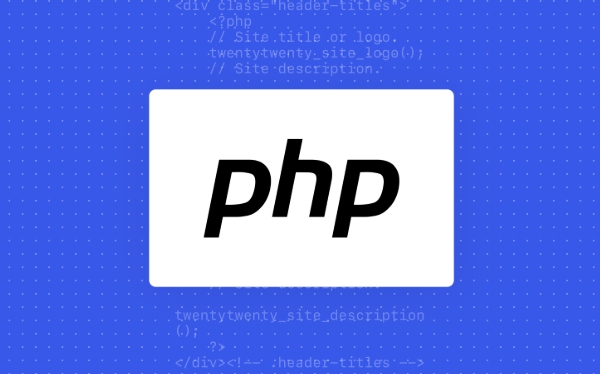 Backend Development
Backend Development
 PHP Tutorial
PHP Tutorial
 Resolving Common Pitfalls with Null Bytes and String Termination in PHP
Resolving Common Pitfalls with Null Bytes and String Termination in PHP
Resolving Common Pitfalls with Null Bytes and String Termination in PHP
Jul 28, 2025 am 04:42 AMNull bytes (\0) can cause unexpected behavior in PHP when interfacing with C extensions or system calls because C treats \0 as a string terminator, even though PHP strings are binary-safe and preserve full length. 2. In file operations, filenames containing null bytes like "config.txt\0.php.bak" may be truncated to "config.txt", leading to incorrect file access or security risks. 3. During file uploads, attackers can exploit null bytes in $_POST['filename'] to bypass extension checks, e.g., "shell.php\0.jpg" being saved as "shell.php". 4. String comparisons in pure PHP (===, strcmp) correctly handle null bytes, but C-based extensions or database drivers may truncate strings, risking data integrity. 5. Regular expressions may partially match strings with null bytes unless anchored properly with \A and \z, so input must be checked for \0 before processing. 6. Best practices include filtering null bytes using str_replace("\0", '', $input) or rejecting them, using basename(), realpath(), and filter_input(), validating all user input, avoiding direct string interpolation in system calls or SQL, and using prepared statements for database queries to ensure safety. Always treat null bytes as potentially dangerous input and handle them explicitly to prevent truncation and security vulnerabilities.

Working with strings in PHP usually feels straightforward—until you run into edge cases involving null bytes (\0) and string termination, especially when interfacing with C extensions, file operations, or user input. While PHP handles strings more flexibly than lower-level languages, these issues can still lead to unexpected behavior, security vulnerabilities, or data truncation. Here’s how to understand and avoid the most common pitfalls.

What Are Null Bytes and Why Do They Matter?
A null byte (\0) is a character with the ASCII value of 0. In C-style strings, it marks the end of a string. However, PHP strings are binary-safe, meaning they can contain null bytes and still preserve the full length. The problem arises when PHP passes strings to C functions (like those in extensions or system calls) that do interpret \0 as a terminator.
For example:

$string = "hello\0world"; echo strlen($string); // Outputs: 11
Even with the null byte, PHP knows the string is 11 characters long. But if this string is passed to a C function expecting a null-terminated string, it will only see "hello".
Pitfall #1: Unexpected Truncation in File Operations
One of the most common issues occurs when using functions like file_get_contents() or fopen() with filenames or paths that contain null bytes.

$filename = "config.txt\0.php.bak"; file_get_contents($filename); // May only read "config.txt"
PHP may allow the string to be passed, but the underlying system call (written in C) stops at \0, potentially leading to:
- Reading the wrong file
- Bypassing file extensions (security risk in file uploads)
? Solution: Always sanitize and validate input:
if (strpos($filename, "\0") !== false) {
throw new InvalidArgumentException("Null bytes are not allowed in filenames");
}Better yet, use whitelisting for file operations and avoid dynamic filenames when possible.
Pitfall #2: Security Risks in File Uploads
Attackers may inject null bytes into $_GET, $_POST, or upload filenames to exploit string termination behavior.
Example of a dangerous pattern:
// DO NOT DO THIS $uploadDir = '/uploads/'; move_uploaded_file($_FILES['file']['tmp_name'], $uploadDir . $_POST['filename']);
If $_POST['filename'] is "shell.php\0.jpg", some systems might save it as shell.php (because .jpg is ignored after \0), bypassing extension checks.
? Solution:
- Never trust user input for file paths
- Use
basename()to strip directory info - Validate extensions on the actual file content, not just the name
- Filter null bytes explicitly:
if (preg_match('/[\x00]/', $filename)) { die("Invalid filename"); }
Pitfall #3: Issues with strcmp and String Comparison
While PHP’s native string comparison (==, ===, strcmp) handles null bytes correctly, issues can arise when using extensions or database drivers that rely on C strings.
For example, comparing "admin\0" and "admin" in PHP:
var_dump("admin\0" === "admin"); // false
var_dump(strcmp("admin\0", "admin")); // non-zero (not equal)This is safe in pure PHP, but if these strings are used in SQL queries via a C-based driver, truncation could occur.
? Best Practice: Use prepared statements to avoid injection and ensure data integrity:
$stmt = $pdo->prepare("SELECT * FROM users WHERE username = ?");
$stmt->execute([$username]); // PDO handles escaping and binary dataPitfall #4: Misbehavior in Regular Expressions
PCRE functions in PHP are generally binary-safe, but null bytes can still cause confusion, especially when processing user input.
Example:
preg_match('/^[\w\.] $/', "file.txt\0.php"); // May return 1 (!)The regex matches up to the null byte, but the full string is unsafe.
? Fix: Explicitly reject null bytes before regex:
if (strpos($input, "\0") !== false) {
// Reject or handle
}Or use stricter patterns with \A and \z (absolute start/end):
preg_match('/\A[\w\.] \z/', $input); // Ensures full string matchGeneral Best Practices
To avoid null byte pitfalls in PHP:
- ? Filter null bytes from user input:
$clean = str_replace("\0", '', $input); // or reject entirely - ? Use built-in functions like
basename(),realpath(), andfilter_input() - ? Validate and sanitize all external data—never assume it’s safe
- ? Avoid direct string interpolation in system calls or SQL
- ? Use binary-safe functions when dealing with raw data
Null bytes aren’t inherently evil, but they expose the gap between PHP’s high-level string handling and the low-level world of C. By validating input early and understanding where your strings go, you can avoid truncation, security flaws, and debugging headaches.
Basically: treat null bytes like any other dangerous input—filter them out or handle them explicitly.
The above is the detailed content of Resolving Common Pitfalls with Null Bytes and String Termination in PHP. For more information, please follow other related articles on the PHP Chinese website!

Hot AI Tools

Undress AI Tool
Undress images for free

Undresser.AI Undress
AI-powered app for creating realistic nude photos

AI Clothes Remover
Online AI tool for removing clothes from photos.

Clothoff.io
AI clothes remover

Video Face Swap
Swap faces in any video effortlessly with our completely free AI face swap tool!

Hot Article

Hot Tools

Notepad++7.3.1
Easy-to-use and free code editor

SublimeText3 Chinese version
Chinese version, very easy to use

Zend Studio 13.0.1
Powerful PHP integrated development environment

Dreamweaver CS6
Visual web development tools

SublimeText3 Mac version
God-level code editing software (SublimeText3)
 Resolving Common Pitfalls with Null Bytes and String Termination in PHP
Jul 28, 2025 am 04:42 AM
Resolving Common Pitfalls with Null Bytes and String Termination in PHP
Jul 28, 2025 am 04:42 AM
Nullbytes(\0)cancauseunexpectedbehaviorinPHPwheninterfacingwithCextensionsorsystemcallsbecauseCtreats\0asastringterminator,eventhoughPHPstringsarebinary-safeandpreservefulllength.2.Infileoperations,filenamescontainingnullbyteslike"config.txt\0.p
 Advanced String Formatting Techniques with `sprintf` and `vsprintf`
Jul 27, 2025 am 04:29 AM
Advanced String Formatting Techniques with `sprintf` and `vsprintf`
Jul 27, 2025 am 04:29 AM
sprintf and vsprintf provide advanced string formatting functions in PHP. The answers are: 1. The floating point accuracy and %d can be controlled through %.2f, and the integer type can be ensured with d, and zero padding can be achieved with d; 2. The variable position can be fixed using positional placeholders such as %1$s and %2$d, which is convenient for internationalization; 3. The left alignment and ] right alignment can be achieved through %-10s, which is suitable for table or log output; 4. vsprintf supports array parameters to facilitate dynamic generation of SQL or message templates; 5. Although there is no original name placeholder, {name} syntax can be simulated through regular callback functions, or the associative array can be used in combination with extract(); 6. Substr_co
 Defensive String Handling: Preventing XSS and Injection Attacks in PHP
Jul 25, 2025 pm 06:03 PM
Defensive String Handling: Preventing XSS and Injection Attacks in PHP
Jul 25, 2025 pm 06:03 PM
TodefendagainstXSSandinjectioninPHP:1.Alwaysescapeoutputusinghtmlspecialchars()forHTML,json_encode()forJavaScript,andurlencode()forURLs,dependingoncontext.2.Validateandsanitizeinputearlyusingfilter_var()withappropriatefilters,applywhitelistvalidation
 Advanced Pattern Matching with PHP's PCRE Functions
Jul 28, 2025 am 04:41 AM
Advanced Pattern Matching with PHP's PCRE Functions
Jul 28, 2025 am 04:41 AM
PHP's PCRE function supports advanced regular functions, 1. Use capture group() and non-capture group (?:) to separate matching content and improve performance; 2. Use positive/negative preemptive assertions (?=) and (?!)) and post-issue assertions (???)) and post-issue assertions (??
 Navigating the Labyrinth of PHP String Encoding: UTF-8 and Beyond
Jul 26, 2025 am 09:44 AM
Navigating the Labyrinth of PHP String Encoding: UTF-8 and Beyond
Jul 26, 2025 am 09:44 AM
UTF-8 processing needs to be managed manually in PHP, because PHP does not support Unicode by default; 1. Use the mbstring extension to provide multi-byte security functions such as mb_strlen, mb_substr and explicitly specify UTF-8 encoding; 2. Ensure that database connection uses utf8mb4 character set; 3. Declare UTF-8 through HTTP headers and HTML meta tags; 4. Verify and convert encoding during file reading and writing; 5. Ensure that the data is UTF-8 before JSON processing; 6. Use mb_detect_encoding and iconv for encoding detection and conversion; 7. Preventing data corruption is better than post-repair, and UTF-8 must be used at all levels to avoid garbled code problems.
 Strings as Value Objects: A Modern Approach to Domain-Specific String Types
Aug 01, 2025 am 07:48 AM
Strings as Value Objects: A Modern Approach to Domain-Specific String Types
Aug 01, 2025 am 07:48 AM
Rawstringsindomain-drivenapplicationsshouldbereplacedwithvalueobjectstopreventbugsandimprovetypesafety;1.Usingrawstringsleadstoprimitiveobsession,whereinterchangeablestringtypescancausesubtlebugslikeargumentswapping;2.ValueobjectssuchasEmailAddressen
 Beyond JSON: Understanding PHP's Native String Serialization
Jul 25, 2025 pm 05:58 PM
Beyond JSON: Understanding PHP's Native String Serialization
Jul 25, 2025 pm 05:58 PM
PHP's native serialization is more suitable for PHP's internal data storage and transmission than JSON, 1. Because it can retain complete data types (such as int, float, bool, etc.); 2. Support private and protected object properties; 3. Can handle recursive references safely; 4. There is no need for manual type conversion during deserialization; 5. It is usually better than JSON in performance; but it should not be used in cross-language scenarios, and unserialize() should never be called for untrusted inputs to avoid triggering remote code execution attacks. It is recommended to use it when it is limited to PHP environment and requires high-fidelity data.
 Memory-Efficient String Processing for Large Datasets in PHP
Jul 26, 2025 am 09:42 AM
Memory-Efficient String Processing for Large Datasets in PHP
Jul 26, 2025 am 09:42 AM
Processlargefilesline-by-lineorinchunksusingfgets()orfread()insteadofloadingentirefilesintomemorywithfile()orfile_get_contents().2.Minimizeunnecessarystringcopiesbyavoidingchainedstringfunctions,breakingdownoperations,andusingunset()onlargestringswhe





